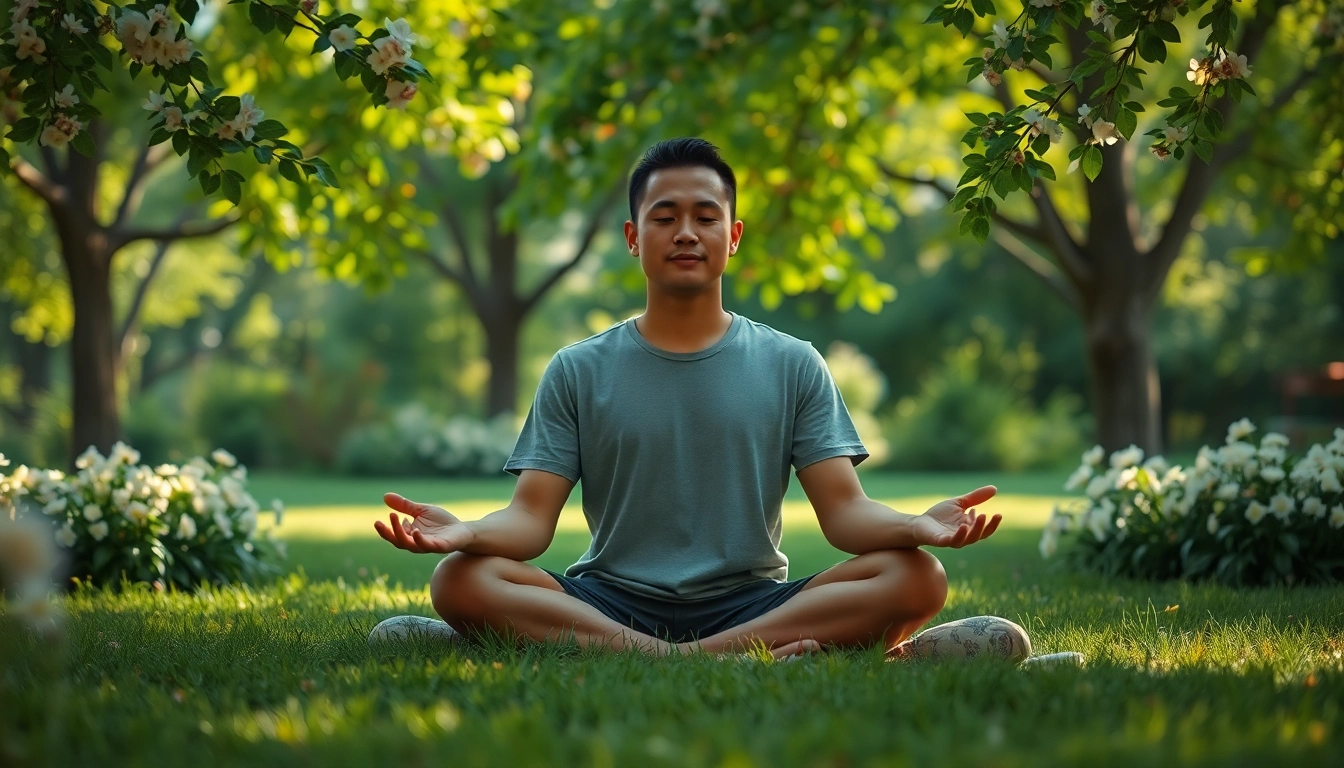In today’s fast-paced world, anxiety has become a commonality that many individuals face daily. Understanding how to manage and cope with anxiety is crucial for overall mental health. Whether you’re dealing with mild nervousness or a more severe anxiety disorder, strategies exist that can aid in finding relief. Engaging in effective methods for dealing with anxiety can pave the way towards a calmer, healthier state of being. This article will cover various aspects of anxiety, proven techniques for coping, when to seek professional help, self-care practices, and community resources that can support you through tough times.
Understanding Anxiety and Its Effects
What is Dealing with Anxiety?
Dealing with anxiety refers to the approaches individuals take to cope with the feelings of fear, worry, and unease that blanket many aspects of life. Anxiety can manifest in various forms – from generalized anxiety disorder (GAD) to panic attacks, social anxiety, and specific phobias. Each of these manifestations can lead to overwhelming feelings that hinder daily activities.
Common Symptoms of Anxiety
The symptoms of anxiety can vary widely but may commonly include:
- Persistent worry or apprehension
- Difficulty concentrating
- Restlessness or feeling on edge
- Physical symptoms such as rapid heartbeat, muscle tension, or gastrointestinal distress
- Sleep disturbances
- Irritability
Recognizing these symptoms is essential in determining how best to handle them and seek appropriate support.
How Anxiety Affects Daily Life
Anxiety can infiltrate various aspects of a person’s life, affecting not just mental well-being but physical health, social relationships, and professional dynamics. Individuals may find it difficult to engage in social situations, feel overwhelmed at work, or struggle to maintain personal relationships. The key to mitigating these effects lies in identifying coping mechanisms and reinforcing a healthier mindset.
Proven Techniques for Dealing with Anxiety
Relaxation Techniques Explained
Relaxation techniques are vital tools in combating anxiety. Some commonly practiced methods include:
- Deep Breathing Exercises: Focusing on your breath can help ground you and calm the mind. A simple practice involves inhaling deeply for four counts, holding for four, and exhaling for four.
- Progressive Muscle Relaxation: This technique entails tensing and then relaxing each muscle group in sequence, which helps to alleviate physical tension associated with anxiety.
- Visualization Techniques: Imagining a peaceful scene can divert attention from anxiety-provoking thoughts and induce a sense of calm.
Implementing these techniques regularly can significantly impact one’s ability to handle stress and anxiety.
Cognitive Behavioral Strategies
Cognitive Behavioral Therapy (CBT) is an effective treatment for anxiety disorders. It involves identifying and challenging negative thought patterns while fostering healthier cognitive approaches. Here are some key CBT strategies:
- Thought Record: Keeping a written account of anxious thoughts can help highlight patterns and triggers, making it easier to challenge these thoughts.
- Exposure Therapy: Gradually facing fears in a controlled manner can desensitize individuals to anxiety-inducing situations, making them less overwhelming over time.
- Problem-Solving Techniques: Evaluating problems based on facts rather than emotions can lead to practical solutions and reduce feelings of helplessness.
Employing these strategies can lead to a more balanced perspective in everyday situations.
Mindfulness Practices to Reduce Anxiety
Mindfulness encourages individuals to stay present and engaged in the moment, which can reduce the tendency to spiral into anxious thoughts. Effective mindfulness practices include:
- Mindful Meditation: Spending time in silent meditation can facilitate mental clarity and reduce anxious feelings.
- Yoga: Combining physical exercise with meditation, yoga promotes relaxation while enhancing physical health.
- Journaling: Writing down thoughts and feelings can enhance self-awareness and provide perspective on anxiety triggers.
Incorporating mindfulness into daily routines can significantly enhance mental resilience, providing a valuable tool against anxiety.
When to Seek Professional Help
Signs You Should Consult a Therapist
While self-help strategies can prove beneficial, knowing when to seek professional assistance is equally important. Signs that suggest the need for therapy may include:
- Anxiety that interrupts daily activities or routines.
- Persistent feelings of dread or fear without logical reasoning.
- Anxiety symptoms that worsen over time.
- Difficulty maintaining personal relationships due to anxiety.
- Dependence on substances to manage anxiety symptoms.
If these indicators resonate with your experiences, professional support can be a significant step towards recovery.
Types of Professionals Who Can Help
Several mental health professionals specialize in treating anxiety. You may consider consulting:
- Psychologists: Trained in assessment and therapy, psychologists can offer various therapeutic approaches.
- Psychiatrists: Medical doctors who specialize in mental health can prescribe medications alongside therapy.
- Counselors or Therapists: Professionals trained in emotional and psychological support that can guide personal journeys.
Finding the right professional fit is vital for effective treatment.
Therapy Options for Dealing with Anxiety
Several therapeutic options exist for dealing with anxiety, including:
- Cognitive Behavioral Therapy (CBT): Widely regarded for its efficacy in treating anxiety through cognitive restructuring and behavioral interventions.
- Exposure Therapy: Helps individuals confront and gradually decrease their fear associated with anxiety-provoking stimuli.
- Medication: In some cases, medications such as SSRIs or benzodiazepines may be prescribed as part of an overall treatment plan.
The best course of action varies from individual to individual, making it essential to consult a professional to tailor the approach to your needs.
Self-Care Practices for Managing Anxiety
Physical Activities That Alleviate Anxiety
Engaging in physical activity can significantly diminish anxiety symptoms. Effective forms of exercise include:
- Aerobic Exercises: Activities such as running, cycling, or swimming promote the release of endorphins that enhance mood.
- Yoga: Combining breath work, meditation, and physical poses can create balance and promote relaxation.
- Walking: A simple yet effective way to clear the mind while engaging in light physical movement.
Regular exercise is shown to not only enhance physical health but also bolster mental well-being.
The Importance of a Healthy Diet
Nutrition plays a critical role in mental health. Diets rich in whole foods, Omega-3 fatty acids, and antioxidants can improve mood and cognitive function. Consider incorporating:
- Fatty Fish: Rich in Omega-3s that support brain health.
- Fruits and Vegetables: Provide essential vitamins and minerals that decrease oxidative stress.
- Whole Grains: Stabilize blood sugar levels, which can positively affect mood.
As such, adopting a balanced diet can play a supportive role in managing anxiety.
Sleep Hygiene and Its Role in Managing Anxiety
Quality sleep is foundational for mental and physical health. Poor sleep patterns can exacerbate anxiety symptoms. Steps to ensure healthy sleep hygiene include:
- Establishing a regular sleep schedule.
- Creating a calming bedtime routine to prepare the mind for rest.
- Avoiding screens and stimulating activities before bed.
Improving sleep hygiene can lead to better management of anxiety symptoms over time.
Community Resources and Support
Support Groups for Dealing with Anxiety
Support groups offer a valuable opportunity to share experiences and coping mechanisms in a safe environment. Many community centers or local organizations host groups focused on managing anxiety. Participating in such groups can foster connection and understanding among individuals facing similar challenges.
Online Resources and Hotlines
A variety of online platforms and hotlines offer resources for individuals dealing with anxiety. These may include:
- Mental health websites that provide informational articles, forums, and support.
- Hotlines that offer confidential support and guidance from trained professionals.
- Online therapy options for those who prefer virtual interaction.
Leveraging these resources can help individuals connect with support and information tailored to their needs.
Building a Personal Support Network
Establishing a personal support network can be crucial in managing anxiety. This may involve:
- Identifying trusted friends or family members to talk to about feelings of anxiety.
- Joining classes or community activities to expand social connections.
- Participating in group therapy or support settings to foster deeper connections with like-minded individuals.
A strong support network not only provides understanding but also empowers individuals to face anxiety more effectively.



